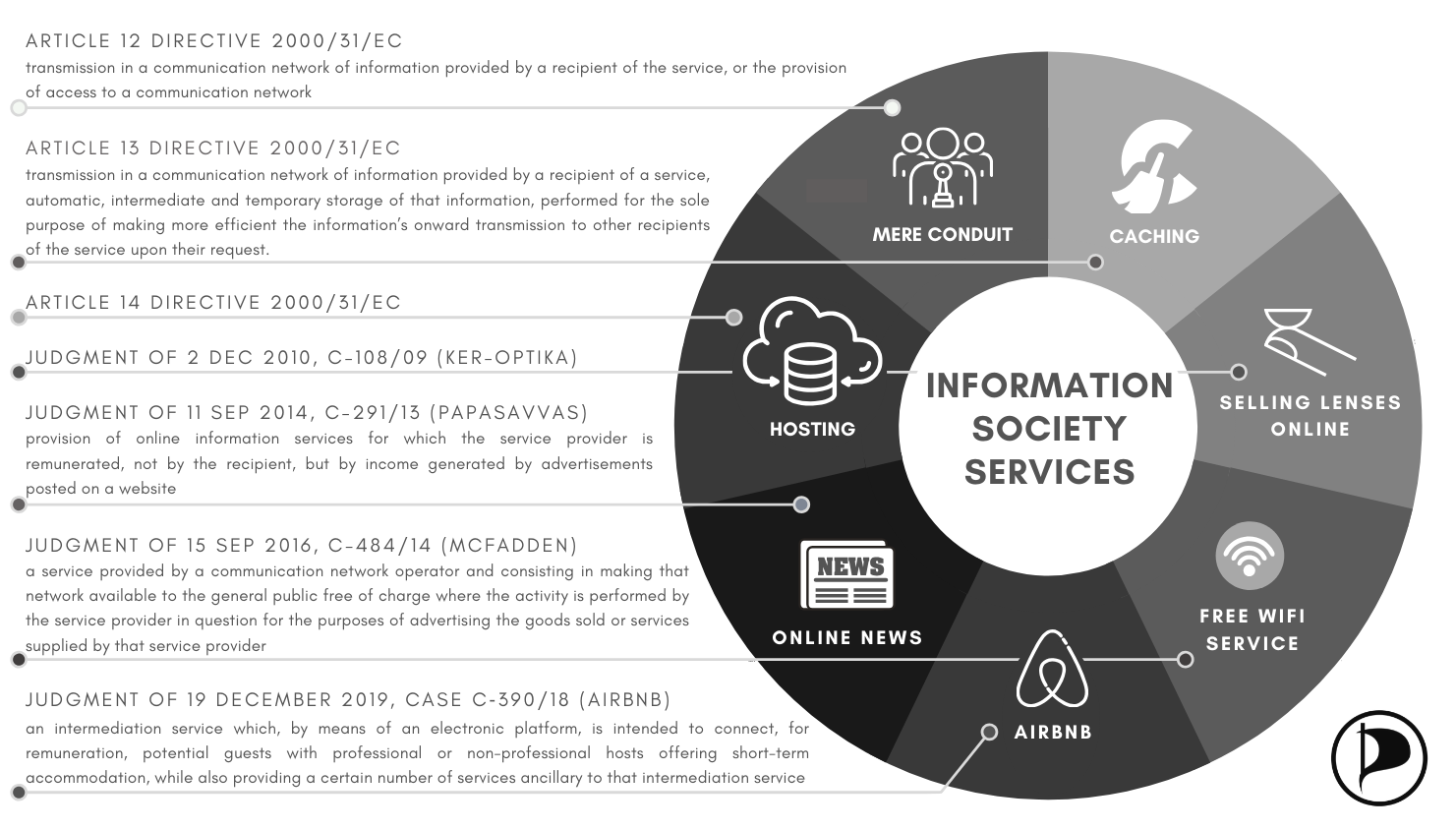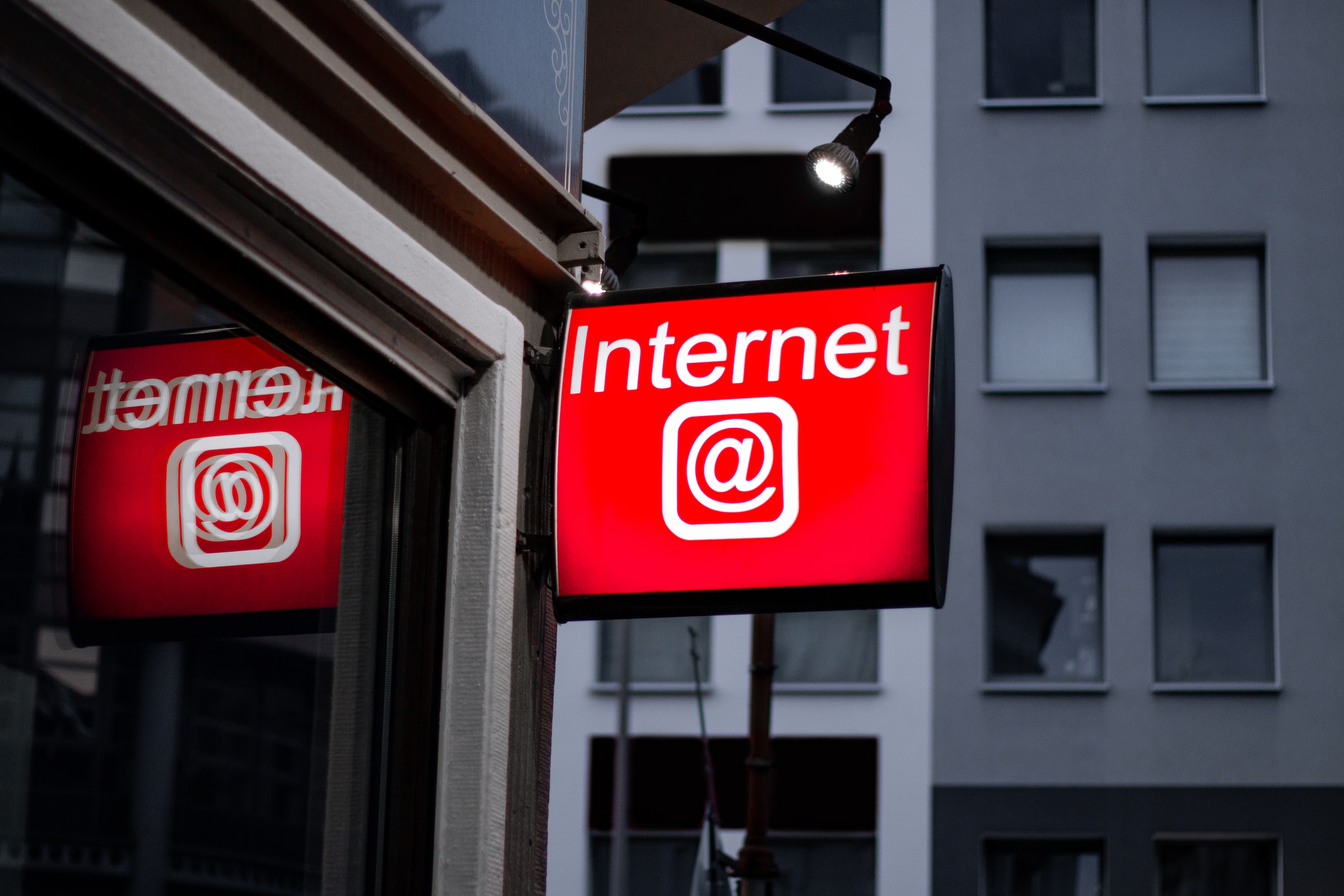Pirate MEP Marcel Kolaja:
The next upcoming legislation reforming fundamental rules governing the Internet in Europe is the Digital Services Act. It will impact platforms behavior when it comes to tackling hateful speech, unsafe products, or to decide if we will finally be able to use other social networks and talk to our friends on major social networks.
Digital Services Act in the European Parliament
The European Parliament is currently drafting several reports in order to give political guidance on what the future reform should include. One of the main reports is Digital Services Act: Improving the functioning of the Single Market in the internal market committee.
Digital Services Act: Improving the functioning of the Single Market
What’s great in the report
e-Commerce Directive: The draft report rightly acknowledges that the main principles of the e-Commerce Directive—such as the internal market clause, freedom of establishment, and the prohibition of general monitoring—have to be maintained. These are still the cornerstones of the regulation and help to establish legal clarity for companies.
High level of transparency of commercial communications and digital advertising should be strengthened: This is something I have been advocating for during our exchange of views with the Commission and something I still maintain.
Illegal and harmful content: It is absolutely necessary to distinguish between these two, while making sure that freedom of expression is not hampered on-line.
Notice and action: Finally, legislation on notice and action is long time overdue, in order to help with the speedy removal of illegal content. Currently, only a handful of Member States implemented such rules, many of which relate to copyright and not illegal content in general.
However…?
It is necessary to point out that the principle “what is illegal off-line is also illegal on-line”is not enough in itself, as protection of fundamental rights should be equally the same on-line, especially freedom of expression, right to privacy, and due process.

The role of “information society services” shouldn’t be overestimated as something that would entail in all cases a specific social responsibility. After all, this would mean that even a private blog displaying advertisement would have a specific societal responsibility to tackle illegal content on-line.
While it seems to be logical to require certain e-Commerce providers to “know your customer”—and therefore require these providers to identify sellers—it is impossible to make sure that all platforms would go after each and every seller to verify if the information submitted is legitimate. It is equally questionable how that would apply to private customers selling on-line.
Enforceable obligation on ISPs seems to contradict the Rapporteur’s intention to maintain article 12 of the e-Commerce Directive regarding the safe harbor protection. Furthermore, it would raise a question of efficiency and proportionality of such measures, since these companies are responsible for forwarding Internet traffic end ensuring the efficiency and security of the Internet.
Finally, active vs. passive provider terminology is not necessary up-to-date with a new definition of recently established services. Recital 42 of the e-Commerce Directive already established the criteria of “knowledge and control over the information”, which is clearly more than pre-set algorithms organizing content. It’s also dangerous to argue that “presenting or otherwise curating content” would imply that a provider suddenly becomes active.
I’m missing in the draft report reference to due process which must be respected in all cases. Judicial oversight should always be ensured. And instead of encouraging platforms to include more in their terms and conditions, removal requests should be based on concrete legal basis.
Clarification of “expeditiously” should be determined in a way that sets realistic timeframe for companies. Discussions on the terrorism regulation already revealed that 1 hour deadline is extremely difficult to comply with even for bigger companies, while smaller ones are absolutely unable to meet this requirement.
Finally, I would have liked to see reference to prohibition of imposing proactive measures. Such mandatory measures were already declared incompatible with the article 15 of the e-Commerce Directive in the Audio-Visual Media Services Directive.


0 comments on “The future of Internet regulation”